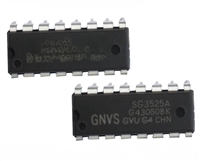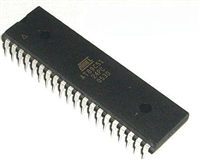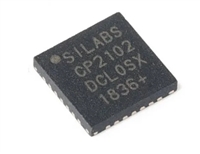| 是否Rohs认证: | 符合 | 生命周期: | Transferred |
| 包装说明: | MO-136, VQFP-80 | Reach Compliance Code: | compliant |
| 风险等级: | 5.78 | 其他特性: | MAX 57 I/OS |
| 最大时钟频率: | 45 MHz | CLB-Max的组合延迟: | 4.5 ns |
| JESD-30 代码: | S-PQFP-G80 | JESD-609代码: | e3 |
| 长度: | 14 mm | 湿度敏感等级: | 3 |
| 可配置逻辑块数量: | 295 | 等效关口数量: | 1200 |
| 输入次数: | 57 | 逻辑单元数量: | 295 |
| 输出次数: | 57 | 端子数量: | 80 |
| 最高工作温度: | 70 °C | 最低工作温度: | |
| 组织: | 295 CLBS, 1200 GATES | 封装主体材料: | PLASTIC/EPOXY |
| 封装代码: | TQFP | 封装等效代码: | TQFP80,.6SQ |
| 封装形状: | SQUARE | 封装形式: | FLATPACK, THIN PROFILE |
| 峰值回流温度(摄氏度): | 260 | 电源: | 5 V |
| 可编程逻辑类型: | FIELD PROGRAMMABLE GATE ARRAY | 认证状态: | Not Qualified |
| 座面最大高度: | 1.2 mm | 子类别: | Field Programmable Gate Arrays |
| 最大供电电压: | 5.25 V | 最小供电电压: | 4.75 V |
| 标称供电电压: | 5 V | 表面贴装: | YES |
| 技术: | CMOS | 温度等级: | COMMERCIAL |
| 端子面层: | MATTE TIN | 端子形式: | GULL WING |
| 端子节距: | 0.65 mm | 端子位置: | QUAD |
| 处于峰值回流温度下的最长时间: | 40 | 宽度: | 14 mm |
| Base Number Matches: | 1 |
| 型号 | 品牌 | 描述 | 获取价格 | 数据表 |
| A1010-JQ44B | ETC | Field Programmable Gate Array (FPGA) |
获取价格 |

|
| A1010-JQ44C | ETC | Field Programmable Gate Array (FPGA) |
获取价格 |

|
| A1010-JQ44I | ETC | Field Programmable Gate Array (FPGA) |
获取价格 |

|
| A1010-JQ44M | ETC | Field Programmable Gate Array (FPGA) |
获取价格 |

|
| A1010-JQ68B | ETC | Field Programmable Gate Array (FPGA) |
获取价格 |

|
| A1010-JQ68C | ETC | Field Programmable Gate Array (FPGA) |
获取价格 |

|
 SG3525资料手册详解:SG3525参数分析、引脚说明、应用介绍
SG3525资料手册详解:SG3525参数分析、引脚说明、应用介绍

 AT89C51单片机资料手册详细解析及应用示例
AT89C51单片机资料手册详细解析及应用示例

 CP2102资料手册解读:CP2102引脚说明、关键参数分析
CP2102资料手册解读:CP2102引脚说明、关键参数分析

 资料手册解读:UC3842参数和管脚说明
资料手册解读:UC3842参数和管脚说明
